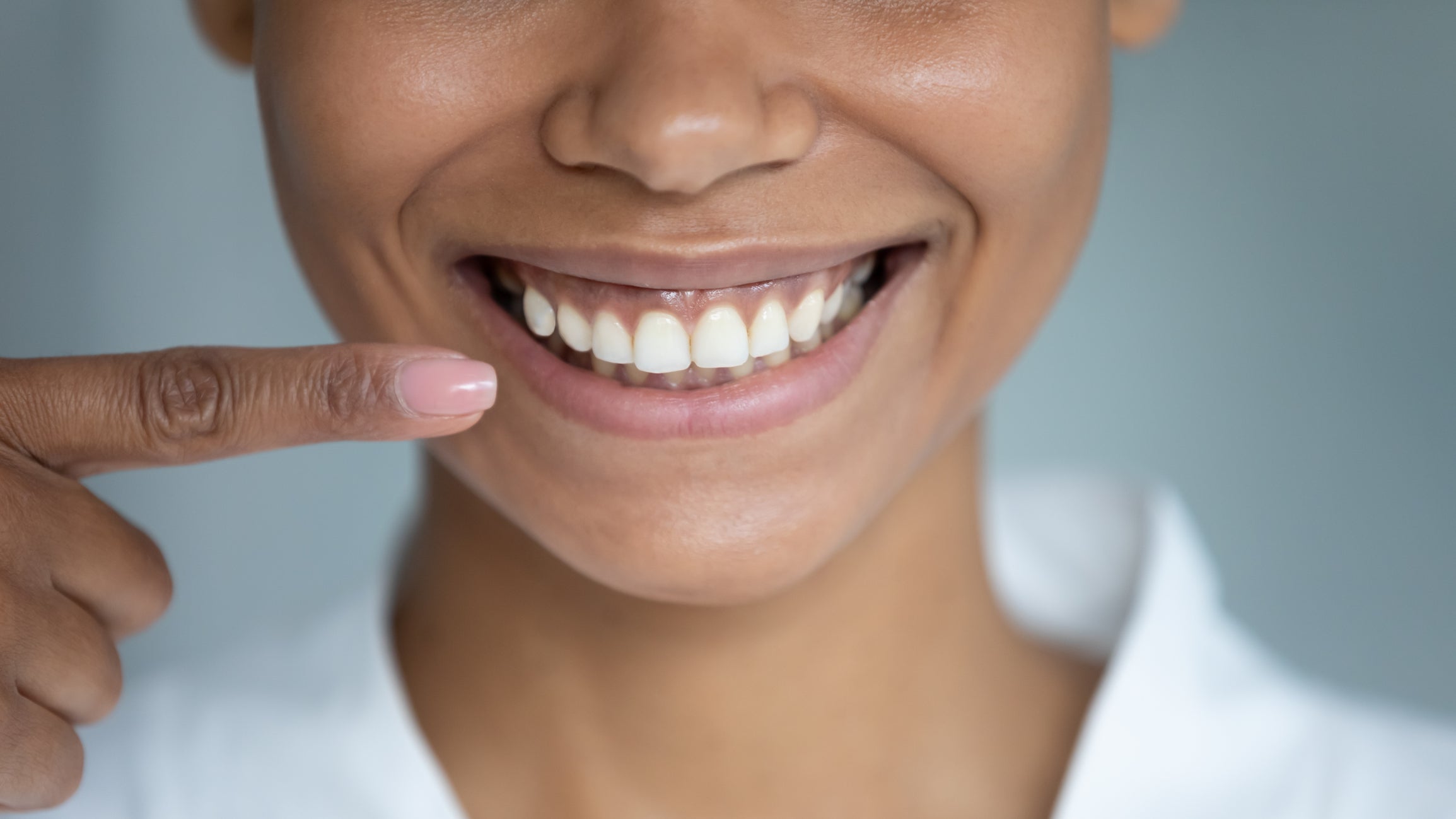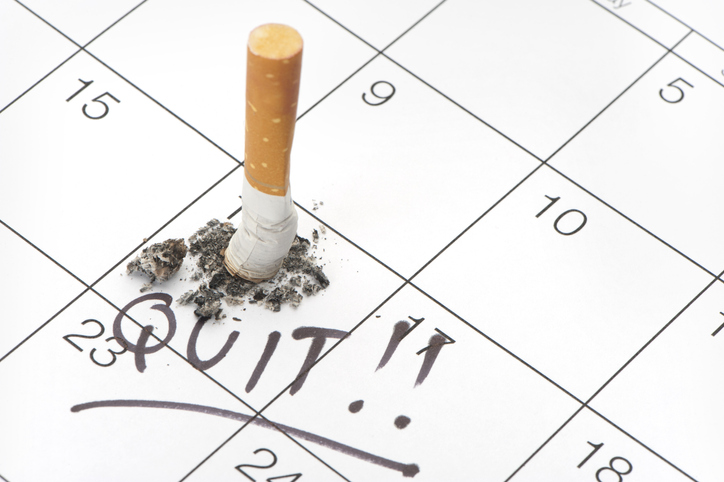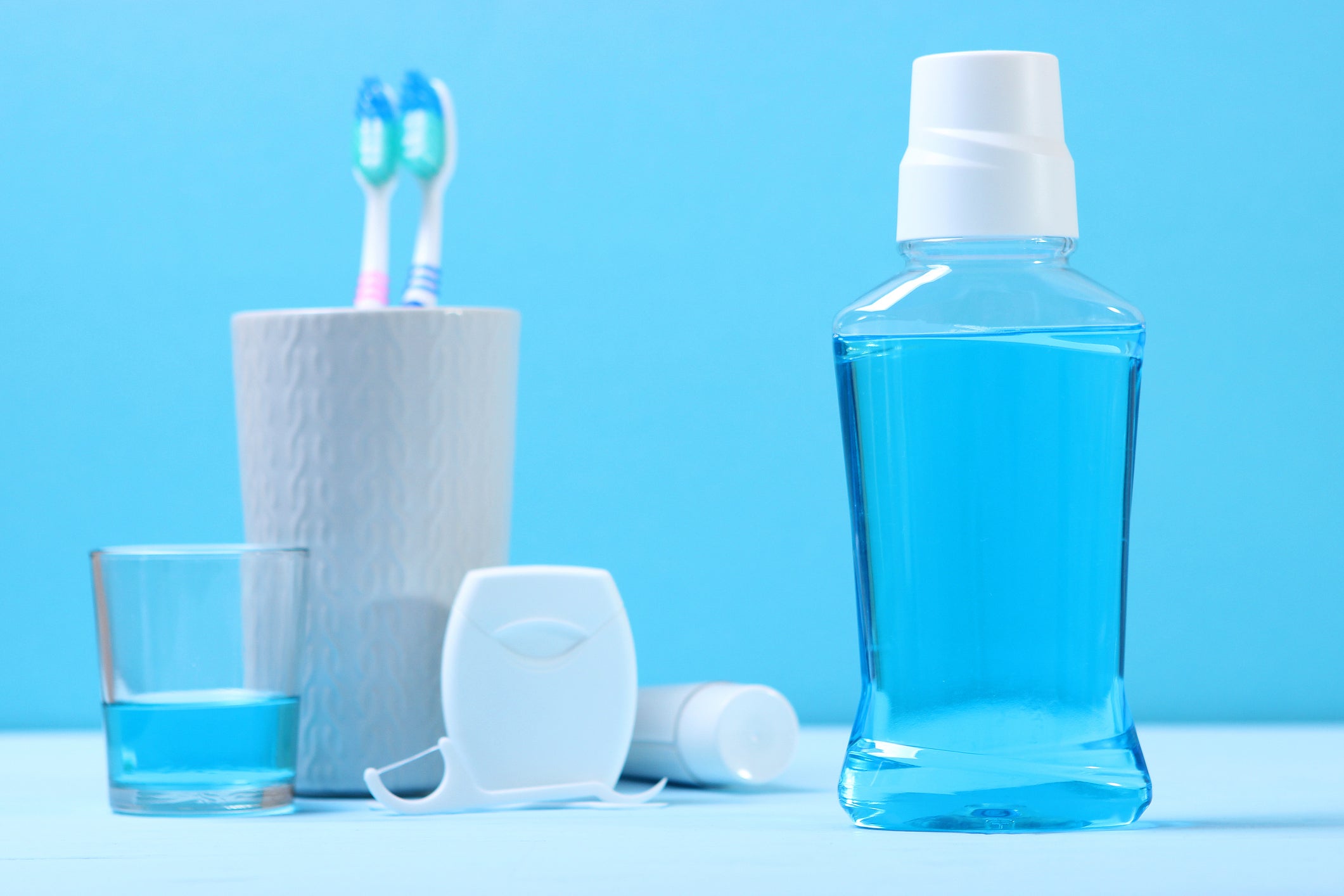-
Can Probiotics Help with Bad Breath?
 The Problem of Bad Breath
The Problem of Bad BreathBad breath is something that affects everyone from time to time, but for many people, it can become a chronic problem. In fact, bad breath, also called halitosis, ranks just behind cavities and periodontal disease in the list of reasons why people see the dentist. Going to the dentist is a good move, because, while bad breath can be the result of eating food like garlic, it can also be an indicator of oral issues like gum disease, cavities, and dry mouth. Your dentist can help rule these causes out, and may refer you to your primary care physician if there are concerns about health conditions that can cause bad breath, like diabetes or kidney disease. For most people, though, halitosis is caused by a blend of gases produced by mouth bacteria. Understanding that, scientists have begun to focus on using probiotics to help solve the problem of bad breath. Continue reading “Can Probiotics Help with Bad Breath?”
-
Ways to Freshen Your Breath When You’re On the Go
 You keep your teeth nice and clean and your breath fresh. Maybe you pride yourself in your sparkling smile and fresh breath. However, when you’re away from home or keeping a busy schedule, it can be hard to keep that breath as fresh as you’d like. What are some ways to keep fresh breath on the go? Here are some helpful tips for freshening your breath when you’re on the go.
You keep your teeth nice and clean and your breath fresh. Maybe you pride yourself in your sparkling smile and fresh breath. However, when you’re away from home or keeping a busy schedule, it can be hard to keep that breath as fresh as you’d like. What are some ways to keep fresh breath on the go? Here are some helpful tips for freshening your breath when you’re on the go.Continue reading “Ways to Freshen Your Breath When You’re On the Go”
-
How Dieting Can Cause Bad Breath

Over the past ten years, there has been a lot of debate about low-carb diets such as the Keto and Atkins diets. Most of this discussion is about how they work, and whether they help people keep weight off for a long period. An overlooked aspect of these diets is their tendency to cause bad breath, also known as halitosis. Some people have taken to calling this phenomenon “keto breath.” How does this happen?
One of your body’s main sources of energy is glucose. Glucose is formed when your digestive system breaks down carbohydrates from complex sugars into simple glucose molecules. When you eat fewer carbohydrates, your body has to find other fuel sources (primarily fat) for energy. This metabolic state is known as ketosis.
When your body breaks down fatty acids, it creates a byproduct known as ketone bodies, or ketones. They come in three common forms: acetoacetate, beta-hydroxybutyrate, and acetone. These are regularly removed from your body when you exhale or urinate.
If you consume a low-carb diet, your body relies more on fatty acids for energy because you aren’t consuming as many carbohydrates. As you use up more fatty acids, more ketones are released as a byproduct of the metabolic process at work.
This surplus of ketones in your body can contribute to bad breath. But the ketones you exhale have very particular odors, which are mostly not like what you experience with normal diet bad breath.
There’s another bad breath factor with low-carb diets. The sudden transition from carbs to proteins changes how the body metabolizes food. The breakdown of protein creates ammonia. A sudden increase in dietary protein will only exacerbate this effect, increasing the amount of ammonia in your urine as well as your stomach gasses. Since it takes a lot of water to remove ammonia from your system, insufficient hydration can degrade your breath as this excess ammonia builds up in your body.
If low-carb diets have helped you, don’t despair. Some people on low-carb diets don’t develop bad breath. With others, it’s a temporary effect of the rapid diet change. And there are ways to mitigate the effect:
- Drink lots of water
- Use mints and/or gum to mask odors
- Brush your teeth at least twice a day
- Floss daily
- Transition slowly into your new diet and see how these changes affect you
If you’re experiencing halitosis, or if you just need the perfect place to get your teeth cleaned or fixed, choose the practice that was voted best dentist in NYC! At Park 56 Dental Group, we offer pediatric, prosthodontics, endodontics, oral surgery, Invisalign®, emergency, and sedation dentistry, all at the highest level of treatment. We serve the Midtown, Central Park, Upper East Side, Park Avenue, and all surrounding Manhattan and New York areas, with a patient-centered practice that has hours to fit your schedule. Schedule your complimentary consultation today by contacting us online or calling us at (646) 679-3989.
-
Why it’s Important to Clean Your Tongue

You brush at least twice a day and floss at least once, but what about cleaning your tongue? If you’re like most people, you probably neglect this important part of dental hygiene. While people are taught from childhood about the importance of brushing and flossing, tongue care is an often neglected subject. It’s vital to oral health, though, and here are some reasons why.
- Your tongue is a breeding ground for bacteria. In fact, most of the bacteria your mouth can be found on the rough surface of your tongue. When you brush your teeth, you remove bacteria from your teeth. However, saliva carries bacteria from your tongue back to your teeth in just a few hours.
- Neglecting to brush your tongue leads to bad breath. All the bacteria hanging out on your tongue can cause odor. Cleaning your tongue can prevent halitosis.
- Cleaning your tongue reduces your risk of periodontal disease. Gum disease is a real problem that can lead to illnesses throughout the body. When you remove the bacteria from your tongue, there’s less of a chance that it can lead to gum infection.
- Your taste buds will thank you for cleaning your tongue. Bacteria on your tongue can coat your taste buds and mute the flavors of your food. Want to enjoy more rich flavors? Clean your tongue.
- Regularly cleaning your tongue makes you less likely to develop oral thrush. An infection caused by overgrowth of yeast in the mouth, oral thrush can be the result of excessive bacteria in your mouth. You may develop white patches on your tongue that require treatment with an antifungal medication. You can keep this infection at bay, however, by regularly cleaning your tongue.
- Your immune system benefits from a clean tongue. The health of your mouth has a major impact on the health of your body and your tongue works to boost your immune system. Toxins build up on your tongue, and when you clean them off, you’ll prevent them from being absorbed into your body. You’ll have better overall health and stronger immune function.
So, what’s the best way to clean your tongue? Rinsing won’t do the trick; you’ll have to use your toothbrush. Beginning at the back of your tongue, work your way towards the front of your mouth, brushing back and forth, side to side, over the entire top surface of your tongue. Brush firmly but gently enough to avoid breaking the skin. To keep a healthy mouth, brush your teeth and tongue at least twice a day, floss daily, and keep regular appointments with an experienced, well-qualified dentist.
If you’re looking for the perfect dentist, choose the practice that was voted best dentist in NYC! At Park 56 Dental Group, we offer pediatric, prosthodontics, endodontics, oral surgery, Invisalign®, emergency, and sedation dentistry, all at the highest level of treatment. We serve the Midtown, Central Park, Upper East Side, Park Avenue, and all surrounding Manhattan and New York areas, with a patient-centered practice that has hours to fit your schedule. Schedule your complimentary consultation today by contacting us online or calling us at (212) 826-2322.
-
Why You May Still Have Bad Breath Even After Brushing and Flossing

You brush, you floss, you rinse, and you may even chew gum. So why do you still have bad breath? Bad breath, also called halitosis, is an embarrassing condition. It commonly comes from different parts of the oral cavity, but can sometimes be caused by an underlying health issue. How can you identify the cause and get rid of bad breath? Let’s look at some common scenarios that lead to halitosis.
- The most straightforward cause of bad breath is a dirty mouth. You’ve probably already tried brushing and flossing, but let’s discuss it just to cover all the bases. Bacteria, food particles, and mucosal cells your body sheds in your mouth can all lead to bad odors, so brushing thoroughly is your first line of defense against halitosis. You have to really get into every nook and cranny of the mouth, and if you have crooked teeth this can be difficult. If it seems like your crooked teeth are harboring odors, consider braces to improve your oral hygiene. And here’s something you may not know: the tongue is the most common place for bad breath to originate, because people often forget to brush their tongues. If you think your tongue may be the culprit, you can brush it with your toothbrush or get a tongue scraper.
- Gum (periodontal) disease can cause bad breath. If you’ve been lax with your dental hygiene, allowing plaque to accumulate around the teeth, you may end up with a tartar build up. This can cause gum disease, known in the early stages as gingivitis. This is an infection of the gums, but as it advances, it can cause the bone around your teeth to deteriorate and decay. As you can guess, this smells unpleasant. Regular dentist appointments are the only way to identify and stop the progress of periodontal disease.
- A dry mouth can have a bad odor. Saliva flow is necessary to keep the mouth free from debris, so if your mouth is dry, it can lead not just to bad breath but also to cavities and gum disease. Some medications can cause dry mouth, as can alcohol and tobacco products. Talk to your dentist about dry mouth treatment if this seems to be your problem.
- Health problems can cause halitosis. Post-nasal drip from a sinus infection, cold, flu or strep throat can attract odor-causing bacteria. Acid reflux and chronic conditions like diabetes, kidney failure, liver failure, peptic ulcer, or intestinal blockage can all be the root of bad breath.
To keep your mouth healthy, clean, and smelling good, regular dental appointments are important. At Park 56 Dental Group, we offer pediatric, prosthodontics, endodontics, oral surgery, Invisalign®, emergency, and sedation dentistry, all at the highest level of treatment. We serve the Midtown, Central Park, Upper East Side, Park Avenue, and all surrounding Manhattan and New York areas, with a patient-centered practice that has hours to fit your schedule. Schedule your complimentary consultation today by contacting us online or calling us at (212) 826-2322.
.
-
How pH Affects Your Teeth

Your body’s pH level can affect your overall health. Lower (more acidic) pH levels increase the risk of type 2 diabetes, heart disease, and obesity. Conversely, higher (more alkaline) pH is linked to improved memory, reduced pain, and lower risk of stroke and hypertension.
Did you know that pH levels also affect your teeth? On the pH scale, anything above 7.0 is alkaline, while anything below 7.0 is acidic. The goal is to keep your mouth at 5.6 or higher. Consider the connection between pH and oral health, as well as how to balance pH levels in your mouth.
Oral Health Risks of an Acidic Mouth
Acidic foods and beverages lower your pH, which can negatively affect your oral health. Here’s what can happen if your mouth experiences long periods of low pH:
- Mineral loss: Acidic snacks deplete your teeth of minerals, leaving them more vulnerable to damage from harmful bacteria. Once the ideal pH of 5.6 is restored, minerals return to your teeth.
- Enamel erosion: Acid wears down enamel, the hard outer coating of your teeth that protects the more sensitive layers underneath. Enamel doesn’t grow back, so it’s vital to care for your teeth before this occurs.
- Tooth decay: Temporary mineral loss and permanent enamel erosion leave your teeth vulnerable to destructive bacteria. The resulting tooth decay and cavities may require restorative dentistry—including fillings, crowns, or root canals—to avoid tooth loss.
- Bad breath: If you struggle with bad breath, this could be a sign of unbalanced pH levels in the mouth.
- Sensitivity to hot and cold: Enamel loss can make your teeth more temperature-sensitive. Since acidity can cause enamel erosion, balancing your pH levels may help treat sensitive teeth.
How to Increase the Alkalinity of Your Mouth
If you want to stop bad bacteria from wreaking havoc in your mouth, create an environment that prevents mineral depletion and supports healthy enamel. Here are some ways to maintain a balanced pH level in your mouth:
- Adopt a more alkaline diet: This consists of eating more vegetables, beans, and seeds while limiting your intake of white bread, sweeteners, condiments, soda, fruit juice, sports drinks, alcohol, tea, and coffee.
- Limit snacks: Every time you eat or drink, your pH level fluctuates. Avoid consuming anything besides water between meals to help the pH remain stable.
- Chew sugar-free gum after meals: Gum chewing stimulates saliva flow, the key to neutralizing acids and protecting your oral health.
- Maintain good dental hygiene: Brush your teeth for two minutes twice a day and floss once a day. Remember to wait at least 30 minutes after eating to brush so your saliva has time to replenish tooth minerals. Schedule a professional dental cleaning twice a year as well.
If you have concerns about managing your pH levels, or it’s been more than six months since your last dental cleaning, contact Park 56 Dental at (212) 826-2322 to schedule a visit to our NYC dentist office.
-
How Smoking Affects Your Teeth and Oral Health

Do you or a loved one smoke cigarettes? If you’re looking for one more reason to quit, consider that tobacco use in any form raises your risk for oral health problems. Here are the issues associated with smoking cigarettes, cigars, and pipes or using smokeless tobacco:
- Gum disease: Also called periodontal disease, gum disease is an infection that causes red, swollen, tender, and bleeding gums. Smoking increases your risk of gum disease by weakening your immune system, which makes your body less capable of fighting off infection. In fact, smokers are twice as likely as nonsmokers to contract gum disease. The greater your tobacco use, the higher your risk.
- Tooth loss: As gum disease progresses, it eventually affects the underlying bone structure that anchors your teeth to your jaw. If the bone and tissue that hold your teeth in place break down, your teeth may loosen and need to be extracted.
- Plaque and tartar buildup: The chemicals in tobacco products decrease saliva flow, making it easier for bacteria to cling to your teeth and gums. If not removed daily with diligent brushing and flossing, plaque hardens into tartar, a cavity-causing, tooth-staining substance that can only be removed with professional cleaning.
- Cancer: Besides lung cancer, smoking can also cause cancer of the lips, mouth, throat, tonsils, and esophagus. The risk is six times higher among smokers. In fact, 90 percent of patients diagnosed with these oral cancers are tobacco users.
- Delayed healing: The reduced immune function caused by smoking impairs blood flow to the gums, making it harder for your mouth to heal following a tooth extraction, periodontal treatment, or oral surgery.
- Tooth discoloration: Stained, yellow teeth are a hallmark of smoking. Whitening products can sometimes counteract the effects temporarily, but the stains quickly return.
- Bad breath: Smoking leaves a stale film on your teeth and gums, resulting in “smoker’s breath.” You may be able to mask the odor with a mint for a short time, but the smell will return before long.
- Inflammation: Smoking triggers an immune response that increases the level of inflammatory markers in the bloodstream. This may increase inflammation throughout the body, including at the salivary gland openings and on the roof of your mouth.
- Darkened gums: Smoker’s melanosis, or a darkening of the gum tissue, is one response to irritating tobacco smoke. Up to 22 percent of cigarette and pipe smokers develop this oral change. There is no treatment, but the gums typically return to normal within six to 36 months of quitting.
Clearly, if you want to improve your oral health, kicking the tobacco habit is a great place to start. Your dentist can recommend useful products to help you quit, such as nicotine gum and patches. You can also pursue treatments to reverse the damage caused by smoking. For more useful tips, or to schedule an appointment with our NYC dentist, please contact Park 56 Dental online or call us at (212) 826-2322.
-
Should You Use Mouthwash?

When you picture the basics of good oral care, you probably think of brushing and flossing. What about using mouthwash? Many people include this optional step in their daily teeth-cleaning routine. Should you join them?
Benefits of Mouthwash
Here are the top reasons to use mouthwash daily.
- Freshen your breath: Antiseptic mouthwash kills bacteria that cause bad breath while leaving a minty flavor behind. If you struggle with chronic bad breath, be aware that using mouthwash won’t cure the underlying cause. Speak with your dentist about tips to combat the problem at the source.
- Remove biofilm: Your teeth comprise only 25 percent of the total surface area in your mouth. Even after you brush and floss, a thin, slimy layer of bacteria may linger on your tongue, cheeks, and the roof of your mouth. Rinsing with mouthwash minimizes this biofilm, leaving your mouth cleaner than brushing and flossing alone.
- Prevent plaque buildup: Some mouthwash products are formulated to help prevent plaque from building up between your teeth and along the gum line. This sticky substance is teeming with bacteria, so preventing it from forming is the best defense you have against cavities and gum disease.
- Strengthen tooth enamel: Mouthwash with fluoride additives can help make your teeth stronger and more plaque-resistant.
- Prevent staining: Hydrogen peroxide mouthwash has minor whitening capabilities when used as directed. Most importantly, it prevents new stains from setting in, making it an effective smile maintenance product following professional teeth whitening.
How to Use Mouthwash
To maximize the benefits of mouthwash, make sure you use it correctly. Follow the directions on the bottle with these additional tips in mind:
- Brush and floss first: Mouthwash isn’t a substitute for brushing and flossing. Perform these steps first to remove food particles and plaque.
- Use the proper amount: Pour mouthwash into the plastic cup that doubles as a lid, using the amount recommended on the bottle. This is typically between 3 and 5 teaspoons.
- Time yourself: Empty the cup into your mouth and begin swishing it between your teeth. Watch the clock or count in your head to the recommended time, which is usually 30 to 60 seconds. As you do, rinse the cup and place it back on the bottle.
- Spit: At the end of the allotted time, spit the mouthwash into the sink. Avoid swallowing.
- Don’t rinse: Mouthwash continues to work after you spit it out, so to avoid diluting its cleaning and tooth-strengthening benefits, don’t rinse with water after using mouthwash. Also, avoid eating or drinking for 30 minutes or as recommended on the bottle.
Need help selecting the ideal mouthwash for your needs? Speak with the expert team at Park 56 Dental. Besides informing your at-home oral care routine, we also offer preventative and restorative services to keep your smile looking healthy and bright. Call us today at (212) 826-2322 or contact us online for more tips or to schedule an appointment at our NYC office.
-
15 Things That Cause Bad Breath

Do you suffer from bad breath, also known as halitosis? In a majority of cases, the odor stems from bacteria in your mouth. Everyone knows that eating onions and garlic can make your breath stink, but these are far from the only culprits. Learn what other things cause bad breath so you can avoid them.
- Citrus fruit: Odor-causing bacteria love acidic environments, so eating lots of citrus fruit invites bad breath to stick around.
- Pasta sauce: Tomatoes are acidic as well, meaning red pasta sauce can contribute to bad breath.
- High-protein diets: The body produces ammonia as a byproduct of breaking down protein. When the odor escapes from your mouth, it causes bad breath.
- High-sugar diets: Because of how sugar interacts with the bacteria in your mouth, eating too many sweets could result in sour breath.
- Peanut butter: Its sticky consistency makes peanut butter difficult for saliva to wash away. As it lingers, bacteria feed, making your breath stink for hours at a time.
- Canned fish: Fishy compounds tend to linger in the mouth, giving off an unsavory smell until you drink water, chew gum, or brush your teeth.
- Cheese: Most dairy products, including cheese, contain amino acids that react with bacteria in your mouth to produce excess hydrogen sulfide. The result is a mouth that smells like rotten eggs.
- Horseradish: Isothiocyanate is a sulfur-containing compound found in all cruciferous vegetables, including horseradish. Mint is the best way to combat the effects of this compound.
- Coffee: Your favorite morning beverage has a drying effect on the mouth, reducing saliva flow and allowing odor-causing bacteria to thrive.
- Alcohol: Excessive alcohol consumption causes dehydration, which can reduce saliva production. This creates a dry environment for foul-smelling bacteria to flourish.
- Tobacco: Smoking or chewing tobacco causes an unpleasant odor in the mouth. Smokers are also more likely to develop gum disease, another source of bad breath.
- Medications: Some prescriptions cause dry mouth, a known cause of halitosis. Other drugs break down in your body, releasing foul-smelling chemicals that can be carried on your breath.
- Infections: Gum disease, tooth decay, mouth sores, or surgical wounds may lead to infections that cause bad breath and an unpleasant taste in your mouth.
- Digestive issues: Chronic digestive distress, acid reflux, and bowel disorders can produce gases that cause halitosis. An inability to digest certain enzymes could also lead to bad breath.
- Poor dental hygiene: The best way to combat almost all sources of bad breath is to brush, floss, and rinse with mouthwash. By maintaining good oral health, you can combat halitosis before it starts.
If your bad breath just won’t go away, you may need help from a dentist to uncover the underlying cause. Please contact Park 56 Dental at (212) 826-2322 to work with one of the top dentists in New York. By providing a thorough dental cleaning, we can help you get rid of bad breath for good!
RECENT POSTS
categories
- Uncategorized
- Cosmetic Dentistry
- Veneers
- Healthier Teeth
- Teeth Whitening
- Dental Health
- Video
- Dental Emergencies
- Invisalign
- Dental Implants
- Root Canal
- Sedation Dentistry
- Infographic
- Dental Crowns and Bridges
- Dental Anxiety
- Gum Disease
- COVID-19
- Bad Breath
- New York Dentist
- Cut out sugar
- General Dentistry
- Oral Health
- Oral Cancer
- Dry Mouth
- Gum Health
- Toothache
- Dental Sealants
- Cavities



